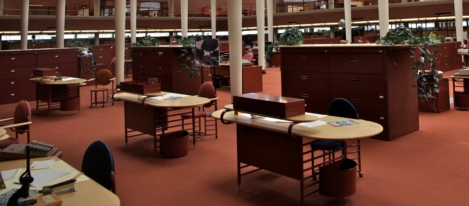June 16, 2015
London cements its status as Europe’s most important tech hub
 A new report launched to coincide with London Technology Week claims that London has cemented its position as the most important tech hub in Europe and will boost the UK economy by £18bn in 2015. According to the event’s organisers, London’s technology sector is growing faster than both the overall economies of London and the whole UK and will continue to do so for the next decade. The figures show that the number of companies in London’s digital technology sector has grown by 46 percent since the launch of the Tech City programme. The sector now employs almost 200,000 people, 17 percent more than in 2010. Other research from EY claims to show London’s dominance of the European tech sector. According to EY more than 1,000 international tech investment projects located in London between 2005–2014, significantly more than the next most attractive city, Paris (381).
A new report launched to coincide with London Technology Week claims that London has cemented its position as the most important tech hub in Europe and will boost the UK economy by £18bn in 2015. According to the event’s organisers, London’s technology sector is growing faster than both the overall economies of London and the whole UK and will continue to do so for the next decade. The figures show that the number of companies in London’s digital technology sector has grown by 46 percent since the launch of the Tech City programme. The sector now employs almost 200,000 people, 17 percent more than in 2010. Other research from EY claims to show London’s dominance of the European tech sector. According to EY more than 1,000 international tech investment projects located in London between 2005–2014, significantly more than the next most attractive city, Paris (381).




















 TechNorth, the Manchester based technology hothouse devised as a regional counterbalance to London, is held in higher regard than the capital’s flagship TechCity development, according to research from recruitment firm Robert Half. The study of IT decision makers across the UK claims that the vast majority would prioritise working with Northern firms over their London counterparts, with 87 percent either ‘highly likely’ or ‘somewhat likely’ to place work with IT businesses in the TechNorth hub rather than those in TechCity London given the choice. The figure is 100 percent for IT leaders based in the North and to 95 percent for those in Scotland. More surprisingly, 80 percent of those based London and the South East said they would prioritise TechNorth, as did 75 percent in the South West and Wales.
TechNorth, the Manchester based technology hothouse devised as a regional counterbalance to London, is held in higher regard than the capital’s flagship TechCity development, according to research from recruitment firm Robert Half. The study of IT decision makers across the UK claims that the vast majority would prioritise working with Northern firms over their London counterparts, with 87 percent either ‘highly likely’ or ‘somewhat likely’ to place work with IT businesses in the TechNorth hub rather than those in TechCity London given the choice. The figure is 100 percent for IT leaders based in the North and to 95 percent for those in Scotland. More surprisingly, 80 percent of those based London and the South East said they would prioritise TechNorth, as did 75 percent in the South West and Wales.














June 2, 2015
The bonds that link work with place are loosening day by day
by Paull Robathan • Comment, Flexible working, Technology, Work&Place
(more…)